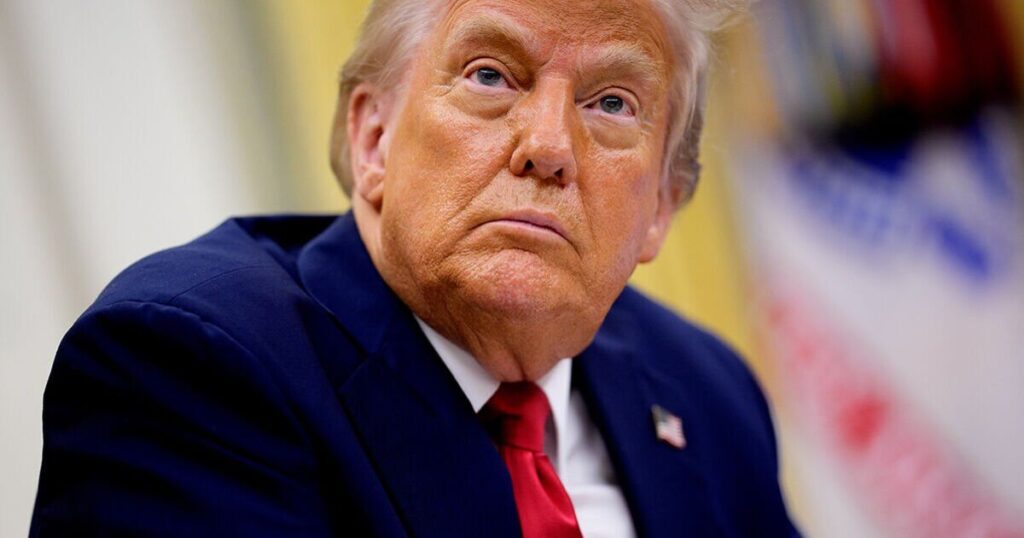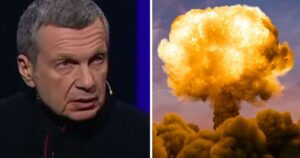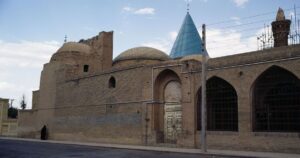Donald Trump has kicked over hornet’s nest with latest Iran-Israel blunder | World | News

America’s faultless display of shock and awe tactics, Operation Midnight Hammer, appears to have poleaxed Iran’s nuclear ambitions. While some analysts suggest that the damage is less extensive than first claimed, this doesn’t matter. The three sites targeted, Fordow, Natanz, and Isfahan, are unlikely to support further uranium enrichment without substantial reinvestment.
In case any existing facilities are still operational, there’s also nothing stopping Trump from ordering a second strike. While bunker busting GBU-57 bombs may have flattened Iran’s existing enrichment capabilities, they have not thwarted its overall nuclear ambitions. Iran is likely to restart its nuclear programme as soon as it can, but it may also try to acquire nuclear weapons off-the-shelf from an ally, such as Russia or North Korea.
Dmitry Medvedev, a member of Putin’s inner circle, has already suggested via social media that this is possible. Whatever happens, recent events will have made Iran all the more determined to acquire a nuclear weapon – and possibly all the more willing to use it. In effect, Trump has bought time rather than completely fixing the problem.
As far as Israel is concerned, the risk of Iran acquiring a nuclear weapon has been an existential threat for more than 30 years. Such is the danger that it has fully committed itself pre-emptive action against its old enemy to avoid any such outcome. Multiple attempts to sabotage Iran’s nuclear facilities, with tacit support from the USA, mean that an undeclared state of war has existed between Israel and Iran for several decades. The events of last weekend and subsequent ceasefire will not change this.
While efforts have been made to negotiate a diplomatic settlement with Iran, it has shown no willingness to back-down or set conditions that would lead to lasting peace in the region. Since the 1980s, Iran has been a prolific sponsor of international terrorism. It has repeatedly denied Israel’s right to exist. Its human rights record among its own people has been appalling.
It routinely executes people for religious offences not punishable elsewhere. It has a record for hostage-taking, using innocent people as collateral. It facilitated the October 7 attacks against Israel. It has supported Hamas, Hezbollah, the Houthi Rebels, and other extremist terrorist organisations that have attacked US and Israeli interests directly. It has armed Britain’s and America’s enemies, including the Taliban, who killed a large number of Coalition servicemen and women in Afghanistan.
Last weekend Donald Trump finally lost patience with Iran. Air strikes not only drastically curtailed it nuclear programme, they may also be a catalyst that drives regime change. This is the only thing that can stop Iran from being rogue state. Further military action, if it impedes the government’s ability to oppress its people, could lead to a popular uprising. With growing resentment among ordinary Iranian citizens, the conditions for a coup d’état are coalescing. In case this seems unfeasible, the lack of criticism against American strikes by other Middle East nations should leave us in no doubt about their dislike of Iran.
So far, Iran’s only response has been to conduct an ineffective air strike against a Qatari air base used by the USA and to threaten to close the Strait of Hormuz. This tokenism shows that Iran’s leaders are rattled. Of course, they may decide to conduct a more lethal long-term terror campaign against those states it considers to be its enemies – which includes Britain. But this risks retribution that could weaken their hold on power further. In the meantime, it will abide by the ceasefire terms, but only until it has formulated a plan for revenge – a dish best served cold.
Ultimately, Trump has knocked over a hornets nest. If he backs down now, Iran will continue and likely succeed in its quest to arm itself with nuclear weapons. But, with the right support, an Iranian popular uprising could overthrow the current despots and install a democratic government that transforms it into a moderate Middle Eastern country aligned with the West – just as it used to be prior to 1979. If this happens, then Trump might just have made the world a safer place, but the job is not yet done.


